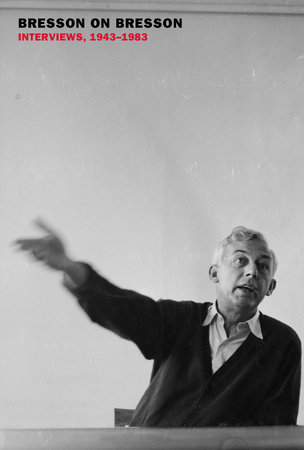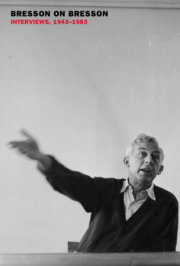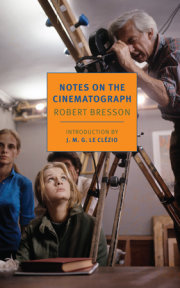Robert Bresson (1901–1999) was born in Bromont-Lamothe, France. He attended the Lycée Lakanal in Sceaux, and moved to Paris after graduation, hoping to become a painter. He directed a short comedy, Affaires publiques, in 1934, but his work was curtailed by the outbreak of World War II. He enlisted in the French army in 1939 and was captured in 1940, spending a year in a labor camp as a prisoner of war. After his release he returned to Paris and directed Angels of Sin (1943), his first full length film, under the German occupation. Les dames du Bois de Boulogne followed in 1945, and in 1951 Diary of a Country Priest was met with widespread acclaim. His next film, A Man Escaped (1956), which follows the memoirs of André Devigny, a French Resistance leader incarcerated during World War II, became a hit. He made eleven more films over the next three decades, including Mouchette, Au hasard Balthazar, Pickpocket, Lancelot of the Lake, and L’Argent. Throughout his career Bresson eschewed the use of theatrical techniques and employed nonprofessional actors whom he referred to as models. Raised in the Catholic faith, he worked on and off throughout his career on an adaptation of the book of Genesis, which never saw fruition. He died in Droue-sur Drouette at the age of ninety-eight.
New York Review Books also publishes Bresson’s celebrated Notes on the Cinematograph.
Anna Moschovakis is a translator and editor, and the author of several books of poetry, including Three Others Are Approaching a Lake (2011). She lives in Brooklyn and Delaware County, New York.
Mylène Bresson is Robert Bresson's widow and the manager of his estate.
Pascal Mérigeau is a journalist and film critic who has published numerous books, among them biographies of Joseph L. Mankiewicz and Maurice Pialat, and a forthcoming biography of Jean Renoir. Mérigeau lives in France.





